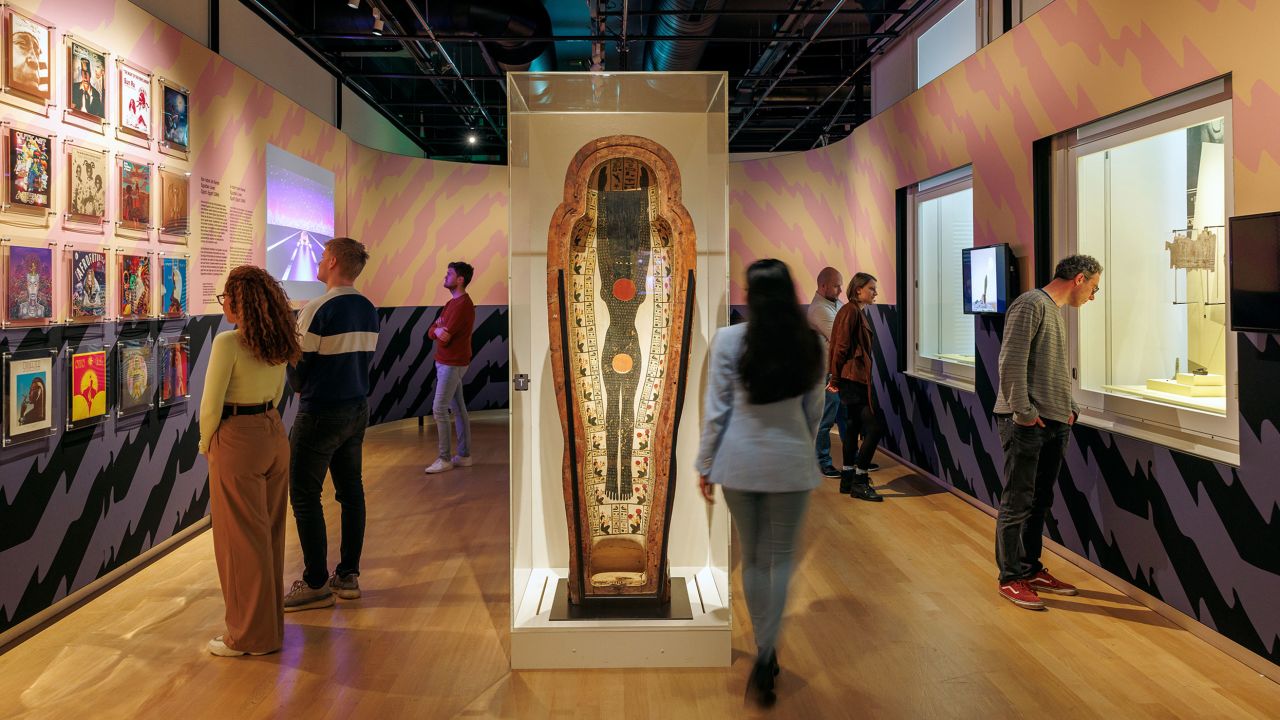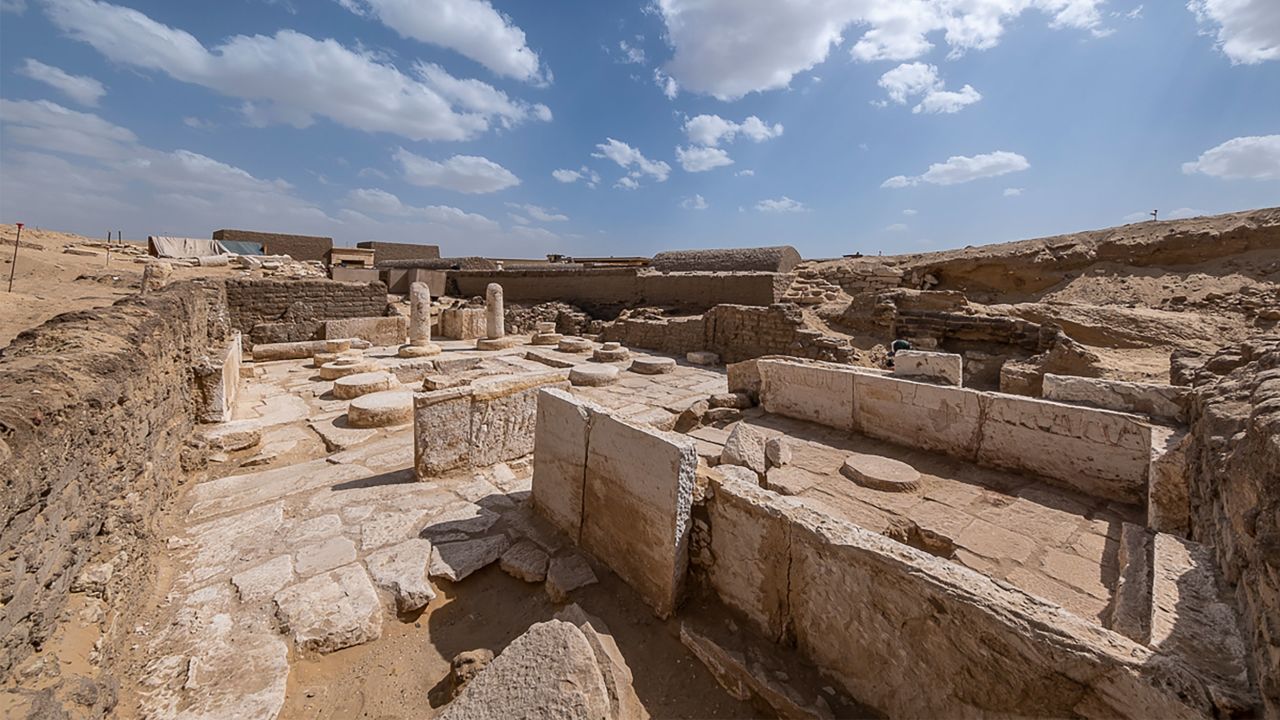Egypt bans Dutch archaeology team from Saqqara due to museum's 'Afrocentric' exhibition

A team of archaeologists from a Dutch museum has been banned from carrying out excavations in Egypt's rich Saqqara necropolis, after the museum mounted an exhibition that drew condemnation from Egyptian authorities.
After the opening of "Kemet: Egypt in Hip Hop, Jazz, Soul & Funk," the National Museum of Antiquities (RMO) in Leiden received an email from the head of foreign missions of the Egyptian Antiquities Service saying that the museum is "falsifying history" with its "Afrocentric" approach, Dutch newspaper NRC reported on Monday.

Wim Weijland, the museum's managing director, confirmed to CNN via email that the Egyptian authorities have denied the institution a permit for the next excavation season at Saqqara. He also confirmed that the journalist who wrote the NRC article had seen the email from the Egyptian authorities.
A vast burial ground that sits nearly 20 miles south of the capital Cairo, Saqqara is home to Egypt's oldest pyramid, the pyramid of Djoser, and has been the site of multiple important discoveries in recent years.
The museum has been carrying out annual excavations there for more than 40 years. Its most recent excavation campaign took place earlier this year, between February 19 and March 23.
"The Rijksmuseum van Oudheden has been working at Saqqara since 1975," Weijland told CNN. "For the upcoming season, the museum has been denied the permit to excavate here."
Weijland said the reason for the permit's denial is the "presumed 'falsifying history' in the current exhibition," adding that the museum is trying to "open the dialogue" with the Egyptian authorities about the matter.
Mostafa Waziri, secretary-general of the Supreme Council of Antiquities of Egypt, did not respond to CNN's request for comment.
Weijland went on to say that the aim of the "Kemet" exhibition is "to show and understand the depiction of ancient Egypt and the messages in music by black artists," as well as to "show what scientific, Egyptological research can tell us about ancient Egypt and Nubia."
Nubia is an ancient region in northeast Africa that extends from the Nile River valley in Egypt, all the way down to Khartoum in modern-day Sudan. The area was once home to the Nubian Kingdom of Kush, or the "Black Pharaohs."
According to its web page, the exhibition, which opened in April and runs until September 3, "embarks on a journey through music history" and looks at "the influence of ancient Egypt and Nubia…in the works of a multitude of musicians of African descent, including icons of jazz such as Miles Davis and Sun Ra and contemporary artists such as Beyoncé and Rihanna."
In recent days, the museum's social media posts about the exhibition were flooded with comments, mostly by Egyptians who deemed it disrespectful. Some commented with photos showing light-skinned ancient Egyptian drawings, next to ones with darker skin tones, which they say the museum is propagating.
In response to the controversy, the museum added a note on its website with further information about the show's content, background and goals. It also said it would remove offensive or racist comments from its social media platforms.
The museum encouraged visitors to "visit the exhibition and form their own opinions," saying it "welcomes respectful dialogue on the cultural heritage of Egypt and Nubia."
This isn't the first time Egypt has objected to the depiction of its ancient ancestors. It recently criticized the Netflix docuseries "Queen Cleopatra," which portrays the ruler of the Ptolemaic Kingdom of Egypt as a woman of color.
Zahi Hawass, an Egyptologist and former Egyptian minister of antiquities, wrote last month that "no one with even a little education could make a film showing Cleopatra as black."
-- Sent from my Linux system.
No comments:
Post a Comment